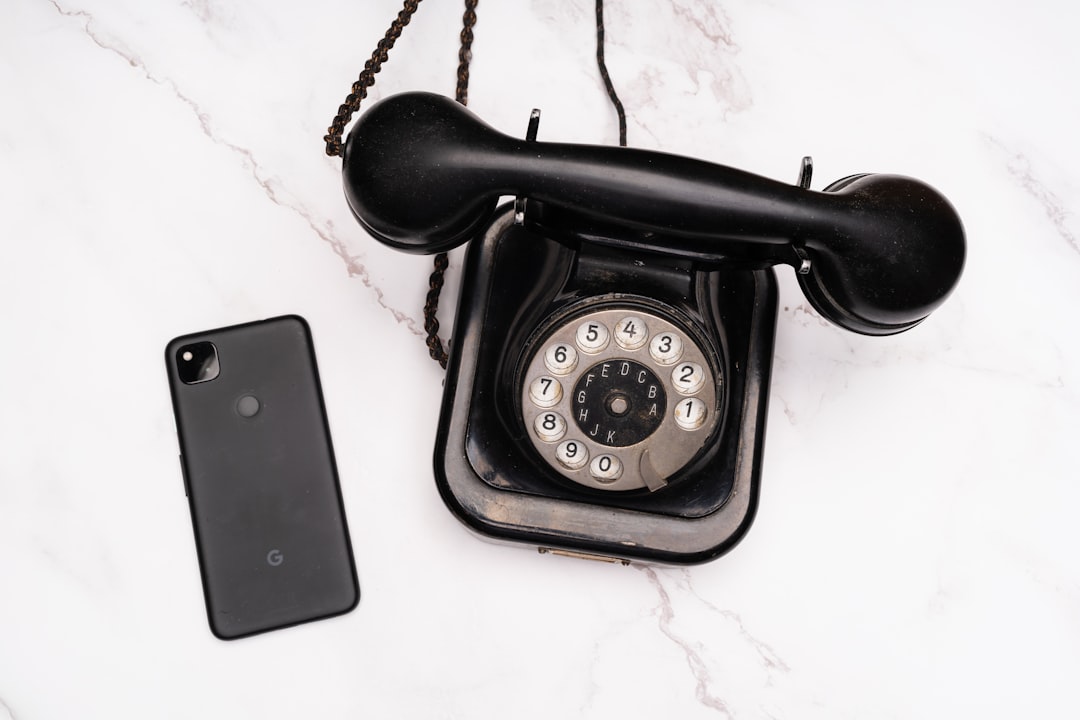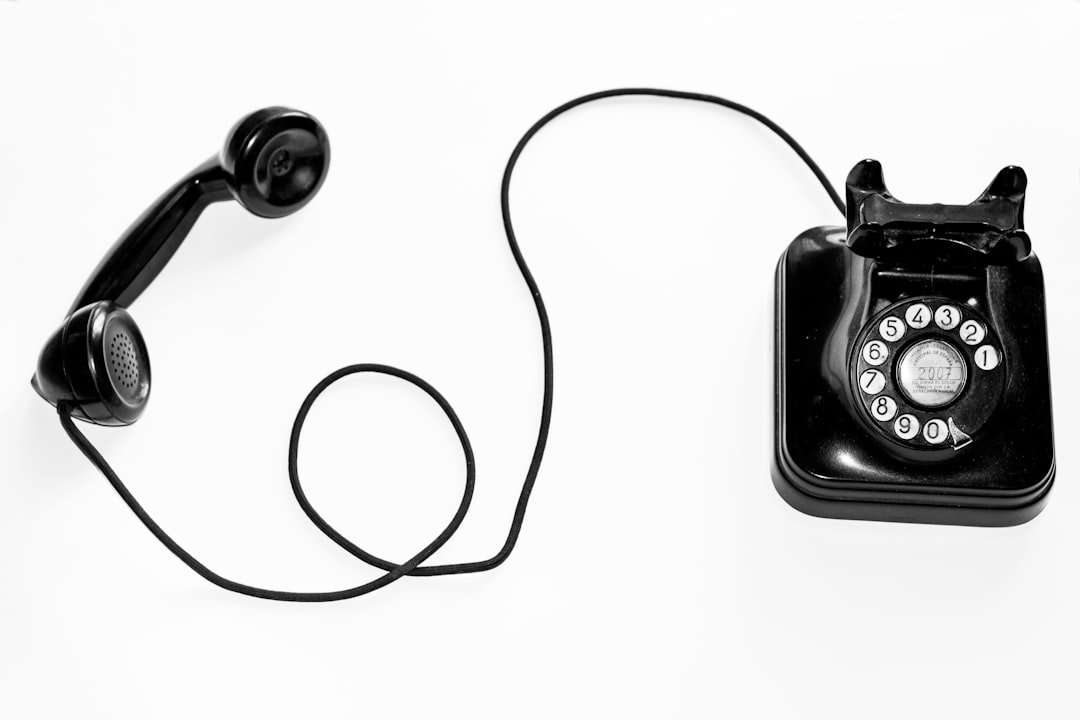In Utah, automated phone calls (robocalls) are regulated by the Telemarketing Act of 2003 to protect consumers from unwanted telemarketing. Businesses using autodialers must obtain prior consent and adhere to strict rules or face fines. Consumers experiencing excessive or inappropriate robocalls can file complaints with the Attorney General's Office or consult specialized autodialer lawyers in Utah who navigate consumer protection laws, offer legal counsel, and represent clients against violators, ensuring their rights are protected.
In today’s digital age, unwanted phone calls from automated systems, or auto-dialers, are an increasingly common irritant. Utah residents often face these intrusive calls, sparking legal debates and consumer frustration. This article delves into the intricacies of auto-dialer regulations in Utah, guiding consumers through their rights and options. From understanding the technology to navigating legal action, we explore strategies for dealing with excessive auto-dialing. For those considering legal recourse, discovering an expert autodialer lawyer in Utah is crucial, ensuring your rights are protected against these persistent calls.
Understanding Unwanted Phone Calls and Automated Dialers in Utah

In Utah, unwanted phone calls from automated systems, often referred to as robocalls, have become a pervasive issue, frustrating countless residents. These calls, powered by autodialers, are used for various purposes, from marketing and sales to debt collection and political campaigning. While some autodialed calls offer valuable information or services, many Utahns find them intrusive and annoying, especially when the calls are unwanted or misdirected.
Utah’s laws, like those in other states, recognize this problem and have implemented regulations to protect residents from excessive and inappropriate automated phone calls. An autodialer lawyer Utah, or a specialized attorney at an autodialer law firm Utah, can guide individuals through these legal protections, ensuring their rights are respected. They help navigate the complex landscape of consumer protection laws related to robocalls, offering solutions for those who have suffered from harassment or misuse of automated dialing technology.
Legal Framework: State Laws Regulating Auto-Dialer Usage in Utah

In Utah, the legal framework governing the use of auto-dialers is clear and stringent, designed to protect consumers from unwanted telemarketing calls. The state’s laws outline specific regulations for businesses employing automated dialing systems, ensuring transparency and consent in marketing practices. The Telemarketing Act of 2003 (TMA) is a pivotal piece of legislation that restricts the use of auto-dialers without prior express consent from recipients. This means companies must obtain explicit permission before initiating robocalls, covering both live agents and automated systems.
Utah’s Attorney General’s Office actively enforces these laws, imposing fines on violators to deter abusive calling practices. The state also allows consumers to file complaints with the AG’s office if they believe their rights have been infringed upon by autodialer activity. Consumers can take action against companies making unwanted calls by seeking legal counsel from an autodialer lawyer in Utah or hiring an attorney specializing in telemarketing law to ensure their rights are protected and to hold transgressors accountable under Utah’s stringent regulations.
When Does an Automated Call Become a Violation?

In the realm of consumer protection, unwanted phone calls from automated systems, often referred to as robocalls, have become a prevalent issue. While many businesses use autodialers for marketing purposes, they can occasionally cross the line into violation territory. The key question is when does an automated call transform from a legitimate marketing tool to an invasive act? This largely depends on how and why the calls are being made, as well as whether consumers have opted out of receiving them.
In Utah, as in many states, there are strict regulations governing robocalls, particularly those involving autodialers. A violation typically occurs when a call is placed without the prior consent of the recipient, often for commercial purposes. Even if a business has obtained initial permission to call, continued calls after an individual has expressed disinterest or registered on national “Do Not Call” lists can constitute a breach. Therefore, it’s crucial for businesses using autodialers to ensure strict adherence to these regulations, and for consumers in Utah to know their rights when dealing with such complaints. Engaging the services of an experienced autodialer lawyer Utah or consulting with a reputable autodialer law firm Utah can provide guidance on navigating these complexities.
Rights of Consumers: What to Do When Facing Excessive Auto-Dialing

When faced with excessive auto-dialing or robotic phone calls from automated systems, consumers in Utah have rights and protections under state law. According to Utah’s Telemarketing Act, businesses are prohibited from making automated or prerecorded telemarketing calls unless they have prior express consent from the consumer. If you’re receiving unwanted autodialer calls, it’s advisable to take action. Start by documenting each call, noting the date, time, and content of the message received.
Consider seeking legal counsel from an autodialer lawyer Utah or consulting with a reputable autodialer law firm Utah. These professionals can guide you on your rights and available options, which may include filing a complaint with the Utah Department of Commerce or pursuing legal action against the offending company. An autodialer attorney Utah can help ensure that your rights are protected and assist in securing compensation for any harm caused by the excessive calls.
Navigating Legal Action: Choosing the Right Autodialer Lawyer in Utah

When facing legal action related to unwanted phone calls from automated systems, choosing the right autodialer lawyer in Utah is crucial. It’s essential to find a law firm that specializes in telemarketing and consumer protection laws, with a proven track record of success in similar cases. Look for an autodialer attorney in Utah who has extensive knowledge of both state and federal regulations regarding automated calls, such as the TCPA (Telemarketing Consumer Protection Act). This ensures your legal representation is well-versed in navigating the complexities of these laws.
Additionally, consider a law firm that offers a comprehensive approach to handling customer complaints. They should provide proactive solutions, effective communication, and regular updates throughout the process. With their expertise, you can expect better guidance on how to manage incoming calls, mitigate potential fines, and strengthen your defense against autodialer-related lawsuits.






